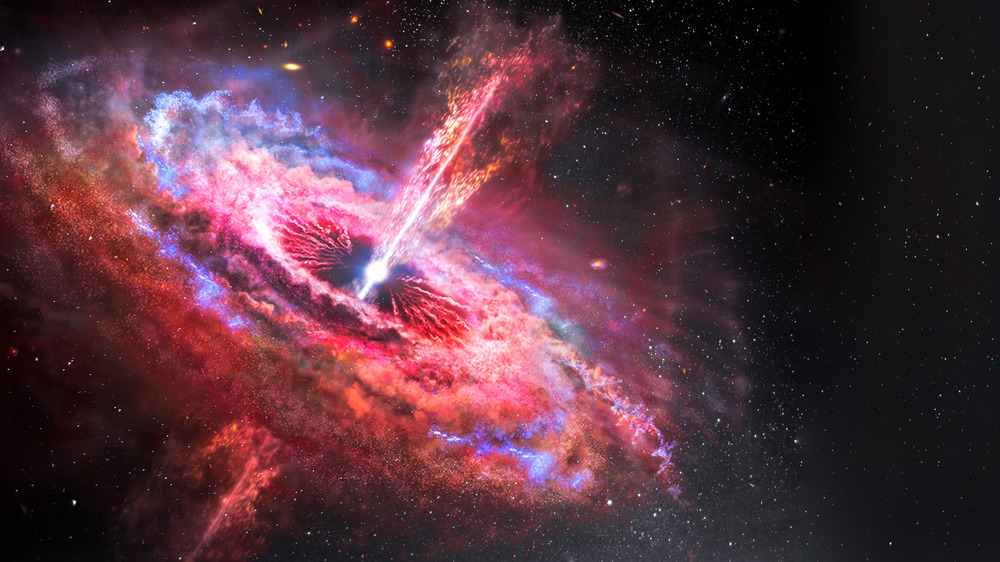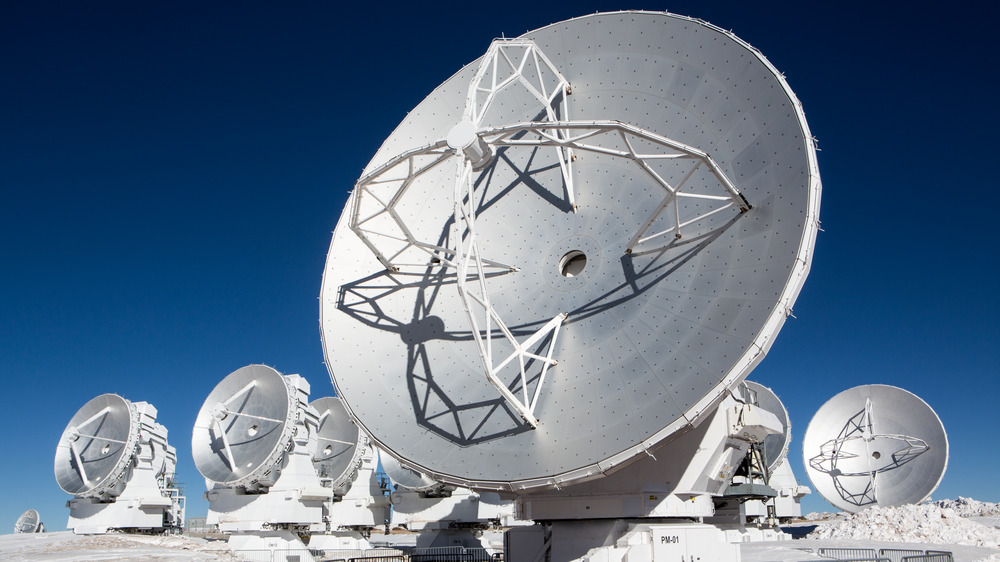This Discovery Of The Oldest Black Hole Ever Found Changes Everything
Astronomers have just found the oldest known supermassive black hole. Over 13.03 billion light-years away from Earth, a massive black hole with a mass greater than 1.6 billion times our sun sits within a quasar named J0313-1806, per CNET. Roughly 670 million years after the universe formed, the quasar likely appeared. This beats the former record-holding black hole, J1342+0928, first discovered in 2017, which astronomers estimate came to life 20 million years after J0313-1806.
Astronomers found the quasar by using the Atacama Large Millimeter/submillimeter Array (or "ALMA") in Chile, which is the world's largest radio telescope, and two observatories on Mauna Kea in Hawaii. As reported by Phys.org, previously accepted theories about black holes now need to be reexamined in light of this new discovery. According to Feige Wang, a NASA Hubble fellow at the University of Arizona who led the discovery team, "Black holes created by the very first massive stars could not have grown this large in only a few hundred million years."
Time to rethink black holes?
As reported by Science News, supermassive black holes such as the one in J0313-1806 are thought to start out as smaller black "seed" holes that consume matter. However, Wang and his team calculated that even if J0313-1806 grew from a smaller black hole as old as the universe itself, it grew extremely fast. Small black holes form after the collapse of massive stars, which means they can only grow into black holes up to a few thousand times as massive as the sun — the newly discovered black hole is, again, 1.6 billion times bigger than the sun.
Xiaohui Fan, fellow University of Arizona astronomer and co-author of the study "A Luminous Quasar at Redshift 7.642," published in The Astrophysicist Journal Letters, notes that a large seed black hole "may have formed through the direct collapse of vast amounts of primordial hydrogen gas" or the seed hole may have started out small, "forming through stellar collapse," and the traditional theories about the speed at which black holes can grow may no longer apply. More astronomical research is necessary to start finding answers to the questions raised by the discovery of J0313-1806.

